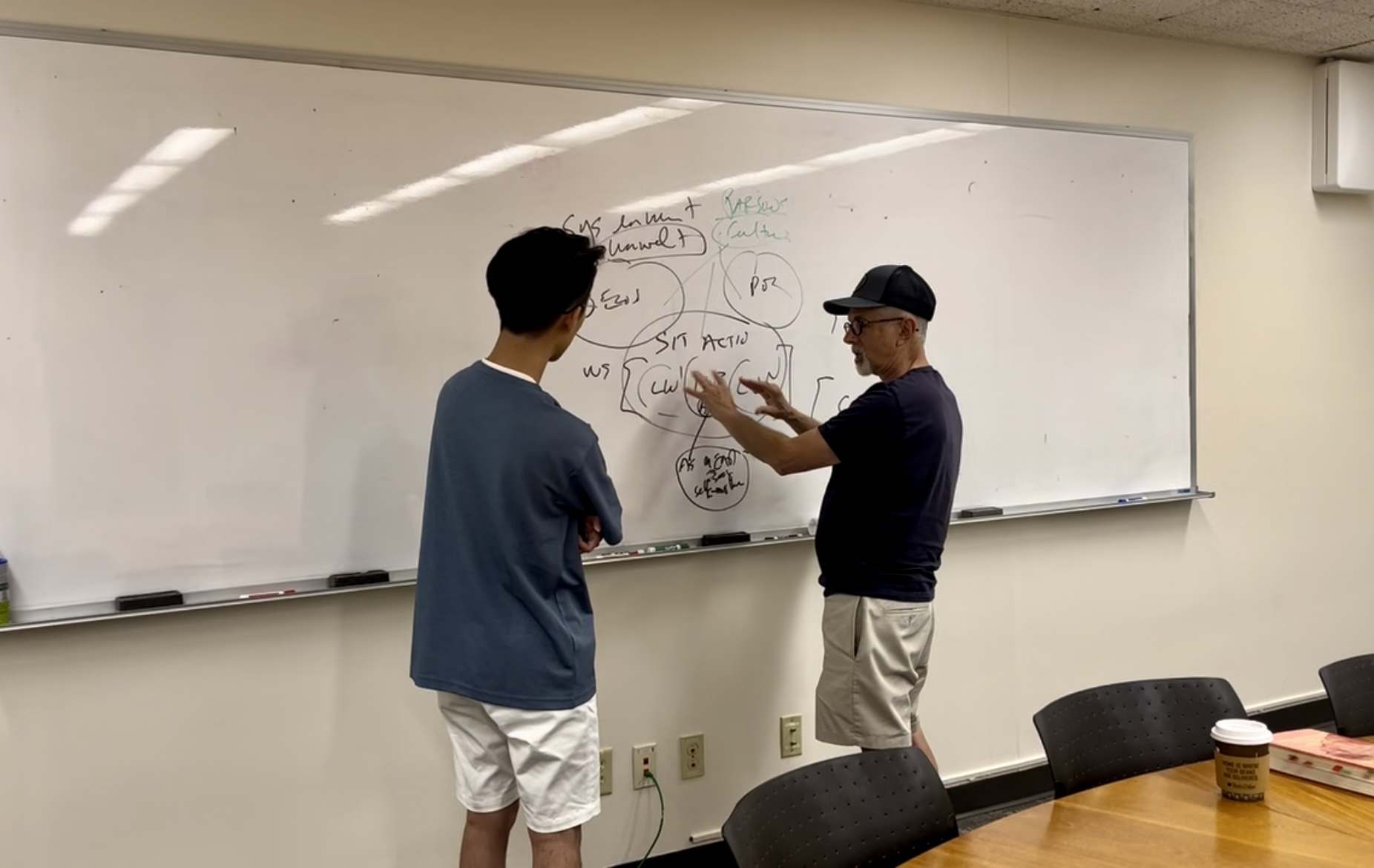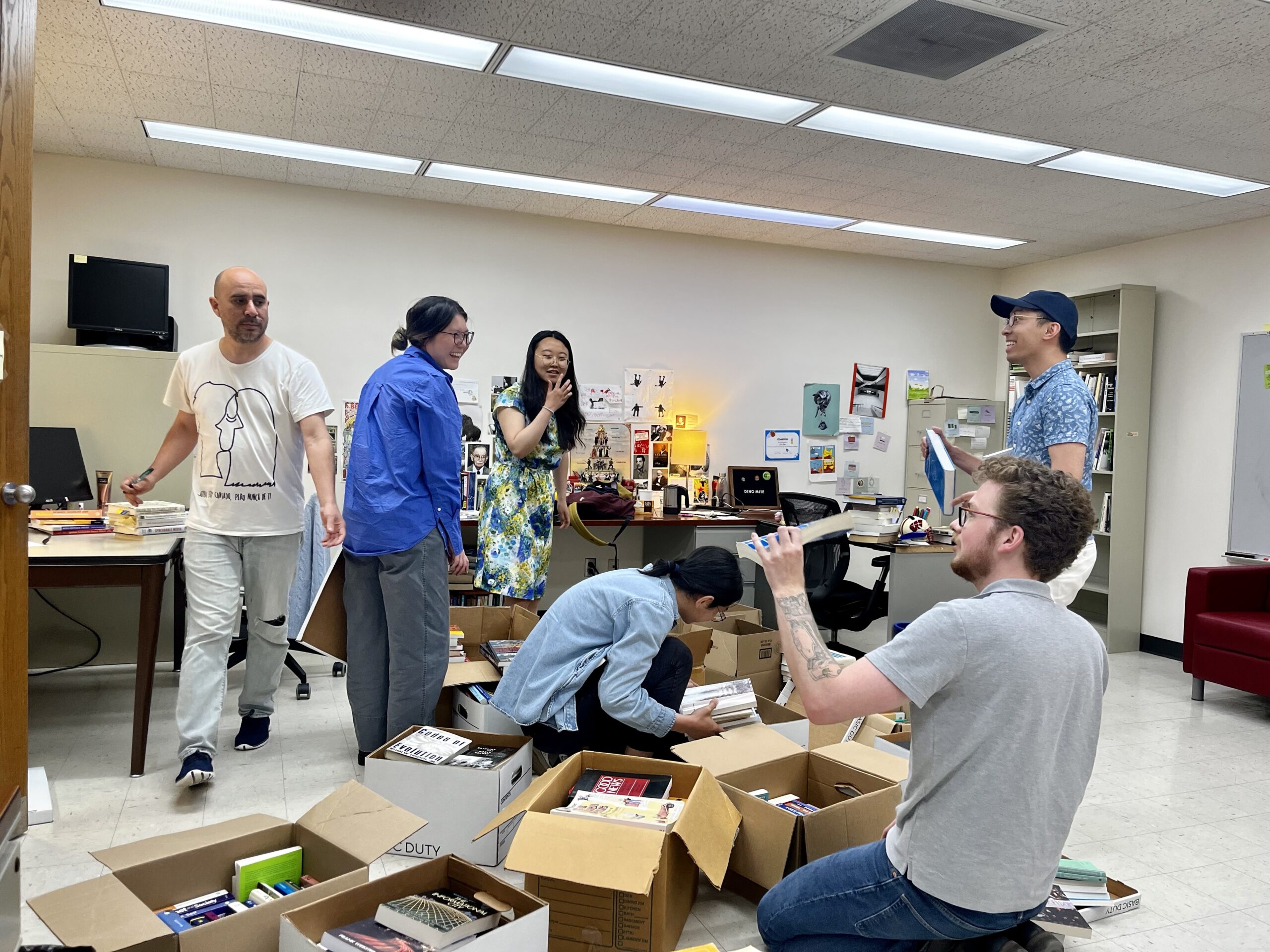 A great deal of learning occurs inside the walls of Vilas Hall, including after class hours. Two years ago a group of Ph.D. students wrangled their hunger to learn Jurgen Habermas’ Theory of Communicative Action and created a reading group with emeritus Vilas Distinguished Achievement Professor Lewis Friedland.
A great deal of learning occurs inside the walls of Vilas Hall, including after class hours. Two years ago a group of Ph.D. students wrangled their hunger to learn Jurgen Habermas’ Theory of Communicative Action and created a reading group with emeritus Vilas Distinguished Achievement Professor Lewis Friedland.
Friedland has been teaching Habermas’ theory for the entirety of his career at the SJMC and even into retirement. He has also made the topic the central focus of his research program. The theory includes two volumes, around 400 pages each, and the material is very dense

“If you want to really know what’s going on, you’ve got to dig into the weeds and read it line by line and paragraph by paragraph,” Friedland said.
The reading group, consisting of Ph.D. students Luhang Sun, Macau Ka Fai Mak, Linjie Dai, Danny Parker, Elohim Monard Rivas and Abby Qin, met on a biweekly basis for two years. The group read between 15 and 20 pages every two weeks then gathered to discuss and analyze the sections. The team members’ firm commitment to learning the material created a strong bond amongst them. Even when individuals were traveling or based in different time zones the group used Zoom to continue consistent meetings.
“You become very invested in each other’s intellectual growth, and you start to root for each other,” Parker said. “As we go on the job market together I have so many hopes and wishes for all of the people that sat with me at that table, because I know that they’re just as dedicated as I am. I know the sacrifices they made to be there and it’s something that we share.”
Individuals gained motivation to continue reading by knowing the dedication and commitment of their fellow group members.
“There was no discussion about quitting,” Monard said. “The best motivation was not this fancy leadership idea of cheering each of us on every day, it was just the commitment to attending and coordinating to be there. To read and to be respectful with us, with Lew, with the reading and with the knowledge that we were building together.”

While reading the work was often a challenge, Parker explained that it was worth it. In fact, she credits the trajectory of her career path to her learning experiences with Friedland. She is currently an Assistant Professor in the Department of Communication at Cornell University.
“When we first began to read it, it took forever to get through one chapter, and we had to do a lot of other reading from other scholars to understand the context in which Habermas was speaking,” Parker said. “In the end, it completely changed me as a thinker.”
Monard, the last person to join the group, believes understanding the contents of this book are necessary to building on it and applying it to today’s field of communication. Parker reiterated the same idea explaining that her goal is to grow from the work scholars did in the hundreds of years before her.
Tackling such a daunting task as a group allowed for a tight knit community to form. While the members of the group are now scattered around the world, their commitment to education and learning remains the same. There are no current plans to undertake another dense theory as a group, but the idea of producing a paper or book using the knowledge they gained together is being considered.

“I would certainly continue working with anyone from that group who wanted to extend their work,” Friedland said.
Friedland hopes, as his students embark on their futures, they carry on the tradition of reading and learning from difficult works, especially for the field of communication. Parker already plans to “pay it forward” as a way of showing her gratitude to Friedland, continuing the legacy and serving the field as a whole.
“Take something that’s worth reading well, read it completely, pull it inside out and look at all its parts, look at how they fit together and you evaluate those arguments. We don’t do it as much as we, frankly, should,” Friedland said. “That’s what the other real achievement is here, not just this book, but having read a long, complicated book together.”
Monard explained that the completion of these books was the completion of an aspiration of his younger self. An aspiration that could not have been achieved without the support of the community built.
“20 or 25 years ago I was a student of communications in Peru. I took this book from the library in Spanish and I tried to read it because it has a very appealing title, The Theory of Communicative Action,” Monard said. “But it was impossible for me to read it, I didn’t have any support, it was very theoretical, I was not prepared. So for me, passing through this process, with this team, with this community, in these two years, was actually closing the cycle.”